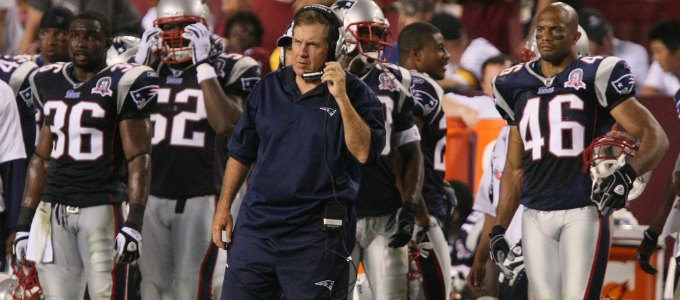
Positive management style works better to achieve desired outcomes on and off the field.
by Aubrey Daniels
January 30, 2015
Image courtesy of Flickr/Keith Allison
At this time of year, coaching is in full view, with the National Championship game a few weeks ago and now with the Super Bowl. While there are many storylines one can draw from these events, coaching is certainly a very important one.
It was interesting that before the national football championship, two articles appeared suggesting that Oregon and Ohio State had very similar coaching philosophies — both contrary to the typical football coaching process. The WSJ highlighted, “Why the Oregon Ducks Don’t Believe in Yelling” and “The Power of Ohio State’s Positive Thinking.” As a result of the game outcome, some would say that Ohio’s “positive thinking” was better than Oregon’s “non-yelling” approach. However, the interesting thing to me is that both coaches used a method of preparation that is not common in football, college or professional.
In the spirit of full disclosure, I must admit to yelling at the TV when a player on my favorite team drops a pass when wide open. However, I realize that if I was the coach, it wouldn’t help the receiver to catch more passes if I yelled at him as he came off the field. In fact, it would probably do the opposite as tension shortens muscle fibers, which reduces flexibility.
That brings me to the Super Bowl. With the distractions of ‘deflategate’ on the Patriots side, and the Seahawks questionable actions, coaching practices can easily be called into question. Some may say “Who cares! They made it to the big game.” But how you achieve results is just as important as the results themselves, and more importantly, it will determine whether you can sustain them.
Some fans say the yellers and screamers win. My response is, “How would you know when they all do it?” Even though many coaches who yell, scream and use profanity win, more of them lose. Of course, just because the coach does not yell, scream and curse will not cause the team to win. There is a matter of knowledge of the sport, strategy, practice methods and decision-making by the coaches. I maintain that if Indiana basketball coach Bobby Knight had known anything about the science of behavior, his teams would have rarely lost because he was outstanding in many other ways.
John Wooden, my all-time favorite sports coach, did not allow players to yell or curse at teammates, even in practice. As he said, “Self-control in little things leads to control of bigger things. For example, the reason I prohibited profanity — a small issue — during practice was because it was usually caused by frustration or anger. I felt that a player who couldn’t control his language when he got upset during a scrimmage would be more likely to lose control in more damaging ways during the threat of a competition — fouling, fighting or making other poor decisions that would almost always hurt the team.” Importantly, he also said, “… in my 40 years of coaching, you will not find a player who can honestly tell you that he heard me use profanity.” I predict that there will be an accelerating trend toward a more positive management style in coaching teams, including business. This will happen for one simple reason — it works better to achieve the outcomes of an activity whether in sports, at home or in business. Take it from the players of both Oregon and Ohio State.
In the final analysis, it is a coach’s job is to help players/employees succeed. A negative environment or negative coach will not win in the long run.
I know I will hear from players and fans who will tell me that they know coaches who have a positive style. Because they are rare, I would like to know who they are. I hope you will share them in the comments below. What better way to promote positive coaching than a future blog that recognizes those exemplars?
One side note to keep in mind: A positive management style does not mean there is not a place for negative consequences. In matters of lying, cheating, stealing and mistreatment of others, on the team and in the community, a negative consequence may be necessary to stop them.



